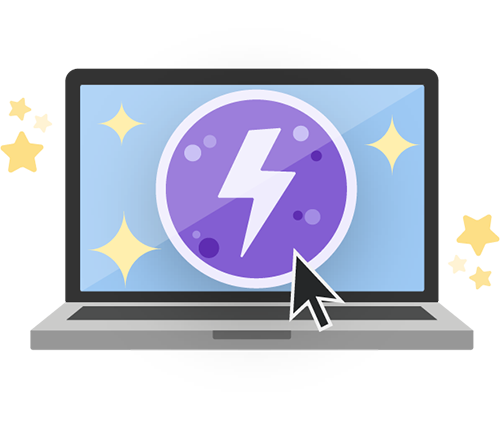Why Every Therapist Should Have a Blog
By Daniel Fava on October 10, 2018


When it comes to learning about marketing your private practice online, you can’t go far without hearing about blogging. With so many things to do to market your services, blogging can seem like just another task on your marketing to-do list. So, is having a blog worth it?
Here are 7 reasons why having a blog on your website can be an effective way to grow your business and expertise.
1. Blogging can help refine your focus as a therapist
There’s something about writing that can teach you a lot about yourself.
As you begin to explore topics that are interesting to you and your clients, you’ll grow your knowledge and expertise surrounding them. Over time, this can help increase your confidence as you talk to potential clients about specific challenges they face.
You may also discover there are topics that you’re not as passionate about as you thought. Perhaps you find that you struggle to write blog posts about anxiety that you’re proud of, but when you start to talk about relationships, it’s like the words just flow out of you like a river.
You can take that as a sign that you are gifted in that topic and you can begin to focus on it on your blog. As you begin to write and explore it, you’ll find you’ll learn even more about it, making you the expert your clients are drawn to.
2. Blogging is extremely good for SEO (search engine optimization)
Each time you add a blog post to your website, you’re adding another page for search engines to crawl. More pages means more words on your website, which can translate into more keywords that people may find you through.
SEO is certainly a long-game strategy, but as you continue to add content, you increase your chances of being found on Google.
Another reason why blogging is great for SEO is that Google is more likely to show your website in search results if your pages have been updated frequently and recently. That’s because search engines see that your website is growing and contributing information.
Think about it: When you’re searching for answers, wouldn’t you rather be shown a website with a wealth of knowledge than an outdated website? Google thinks so, too.
3. Blogging can increase your “know, like and trust” factor
Blogging by nature has a way of showcasing your personality, making you appear more “real” to potential clients.
While much of the content on your homepage, about page, and services pages is geared toward getting your clients information about you and what you do, a blog can be a way to go deeper into topics and serve your visitors before they even become a client.
Blog posts can also be more conversational and share your personality. So, as website visitors read through your articles, readers can achieve a sense of knowing you. And as they get to know you and your personal touch to what you teach, they’ll begin to trust you.
We tend to like to buy from and do business with people we know, so use your blog to share more of yourself and connect with potential clients.
4. Blogging can help showcase your expertise to your ideal therapy clients
Do you want to be known as the go-to therapist for a certain niche? Blogging can help you do that.
With a blog, you can get very focused on specific challenges that your clients may be facing. When a potential client shows up at your website in a state of pain and finds helpful information in a series of blog posts, they'll see you as a generous expert.
If your website is chock-full of great information, it’s going to make you stand out next to a therapist with little-to-no information on their website. It shows potential clients that you’re passionate about your work and that you have valuable insight on the subject matter you cover in therapy.
I know I’d rather hire an expert to counsel me than someone with the just the bare essentials on their website. Wouldn’t you?
5. Blogging can increase your website traffic
When my wife began to consistently post new blogs on her counseling website, we saw her traffic nearly double without doing anything else. That’s even without using social media to promote those blog posts (which I encourage you to do as well).
Blogging increases the number of pages on your website, makes your site look fresh, and increases the number of keywords found on your website. All things Google loves.
It can also mean that people visiting your website stay on your website longer. They may find one of your blog posts through Google or Facebook, see all of the other great posts you have, and stick around. All this will help with converting those visitors to clients.
6. Blogging can lead to more clients
More traffic to your website means more people calling you about your services. The more calls you get, the more chances you have to convert them into clients.
According to Hubspot, “82% of marketers who blog daily acquired a customer using their blog, as opposed to 57% of marketers who blog monthly — which, by itself, is still an impressive result.” I’m not suggesting you blog every day, but as the statistic suggests, blogging can certainly lead to more clients.
As you continue to improve your online marketing and track your traffic, pay attention to the most popular blog posts and pages on your website. Those high-traffic pages are a great place to start testing how you can get more people to convert.
To do this, make your calls-to-action clear and attractive, and make it as simple as possible for that traffic to take the next step, whether that’s calling you or signing up for your email list.
7. Blogging is a FREE marketing tool
The only cost of blogging is your time.
If you’re just starting out, with more time than clients, blogging can be one of the best ways to market your new private practice. Combine it with active social media promotion, and it’s a completely free system for driving traffic to your website and attracting clients.
If done right, your blog can over time make your website an information powerhouse that your ideal clients and Google both love. Don’t miss out on that!
* The content of this post is intended to serve as general advice and information. It is not to be taken as legal advice and may not account for all rules and regulations in every jurisdiction. For legal advice, please contact an attorney.
About Daniel Fava
Get more content like this, delivered right to your inbox. Subscribe to our newsletter.
More Content You'll Enjoy
The Best Practice Fusion Alternative for Mental Health

Supercharge your Documentation with TherapyFuel!
